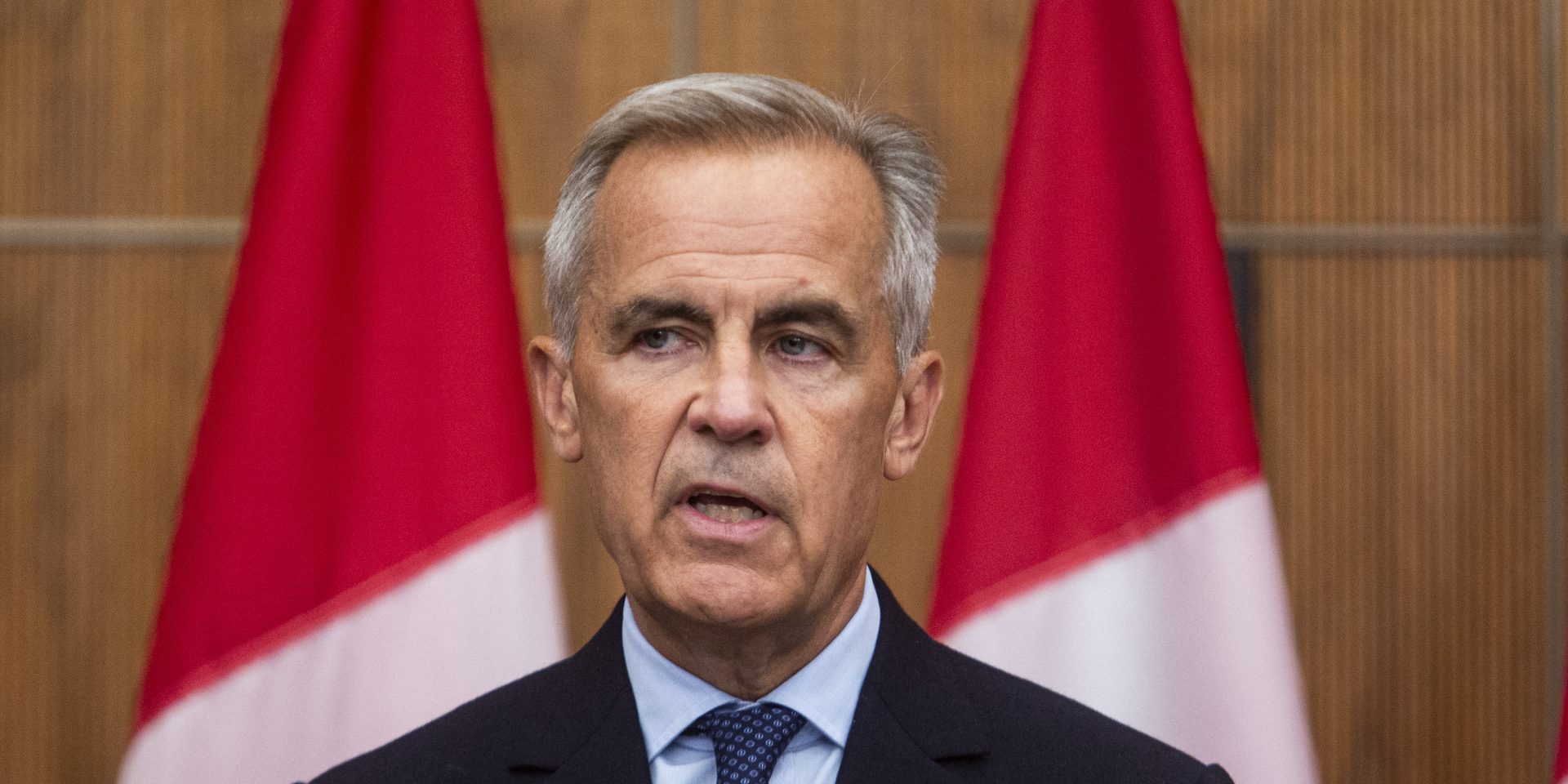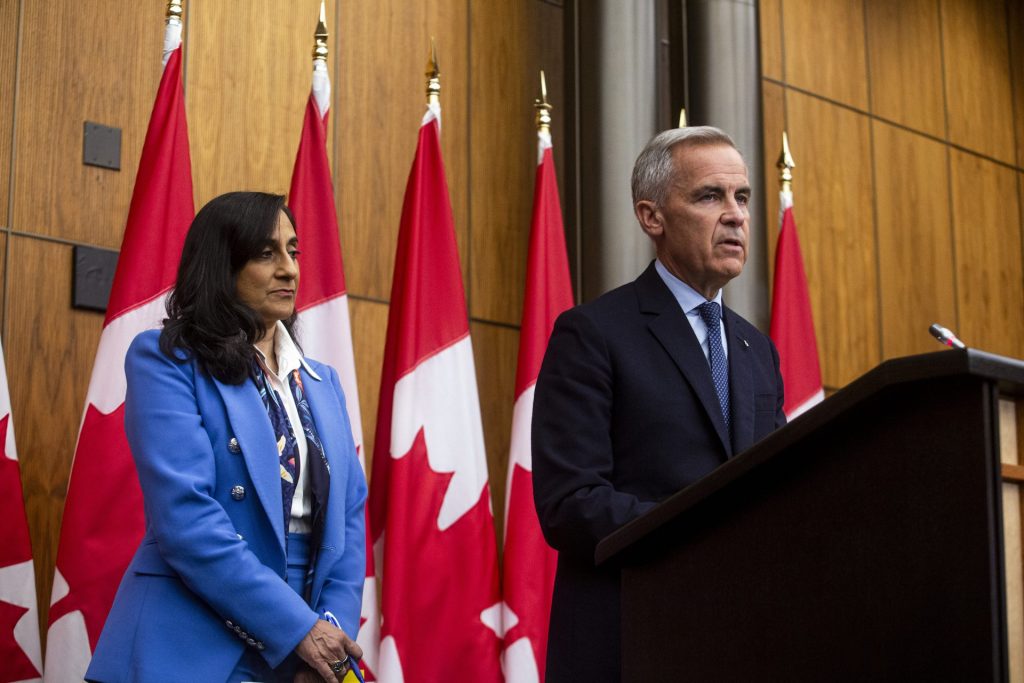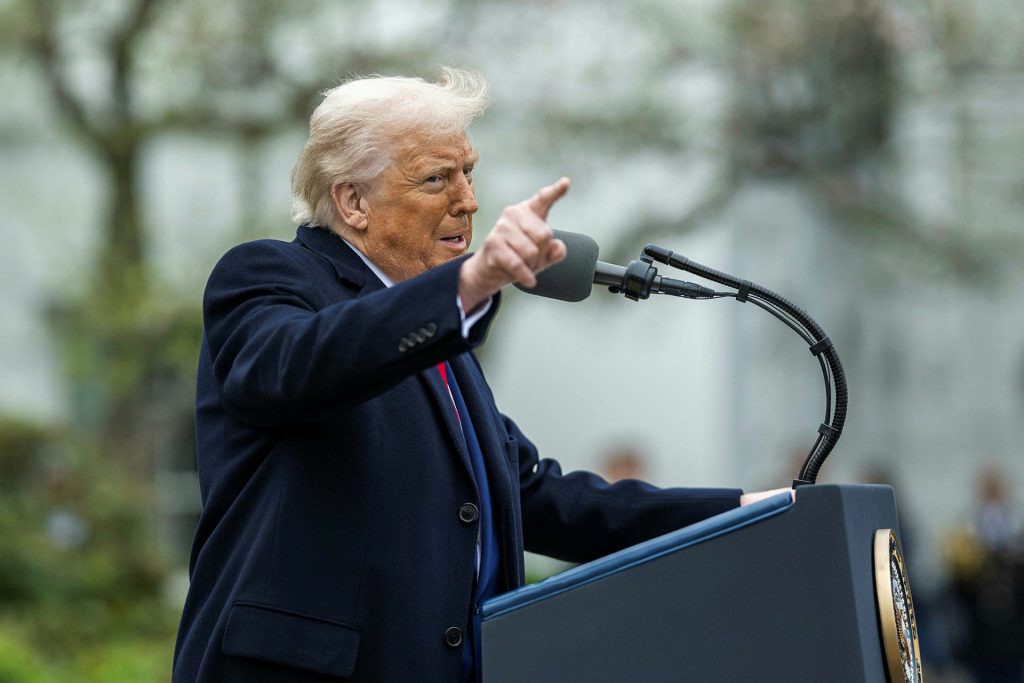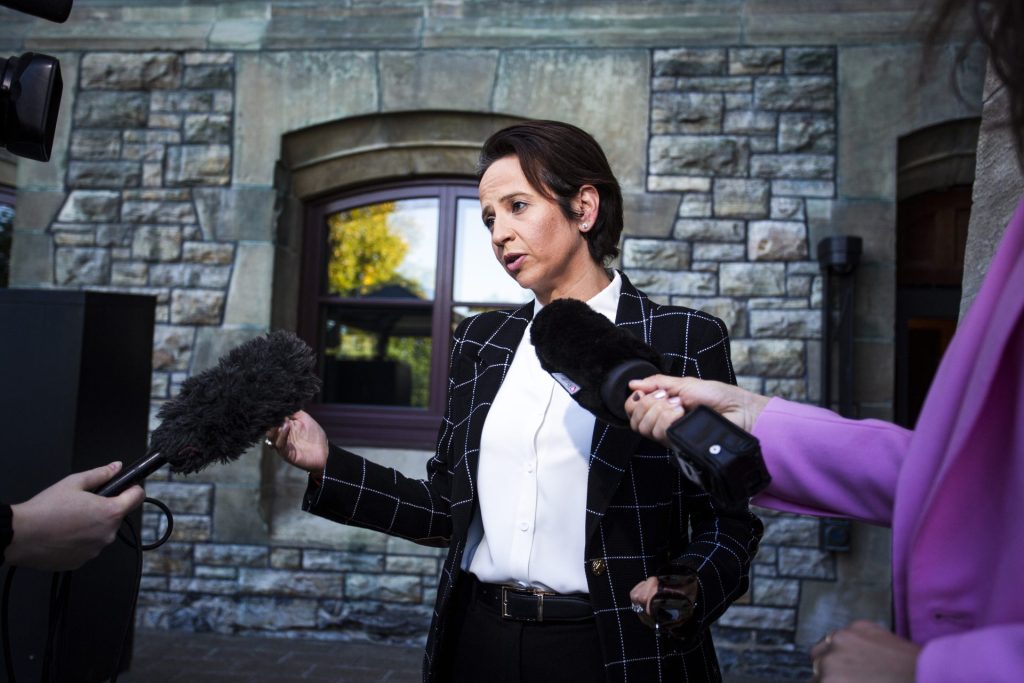Canada recognizing Palestinian state a ‘notable’ foreign policy shift with potential U.S. fallout, say ex-UN envoys

Canada is joining nearly 160 United Nation members in recognizing the state of Palestine—a move that marks a “significant” foreign policy shift, say two former UN ambassadors, marking a departure from the American approach as Republican politicians warn of repercussions.
“I think, from a Canadian perspective, it’s about time that we get there,” said Gilles Rivard, a former deputy permanent representative of Canada to the UN, of Prime Minister Mark Carney’s (Nepean, Ont.) formal recognition on Sept. 21.
Rivard, a former ambassador to Haiti who joined 172 other former diplomats in calling for an arms embargo on Israel and statehood recognition in July, told The Hill Times that during his time at the UN from 2010 to 2013, Israel took Canada’s support “essentially for granted.” He said some countries “didn’t understand” Canada’s position, calling Carney’s move to recognize statehood a “significant” change in foreign policy.
“We’ve been always behind Israel since Israel became a country,” but in some cases Canada’s position was at odds with other countries, and “we pay a price for that,” said Rivard of his time on the international body.
“For Canada to make this move now is notable,” agreed Louise Blais, who was Canada’s ambassador and deputy permanent representative to the UN from 2017 to 2021, “because vis-à-vis the other countries … there was a record of votes at the UN that was quite different than the vast majority of the member states.”
“Historically, and certainly over the past decade or so, Canada was always extremely aligned with the American-Israeli position on resolutions and issues at the UN, and we were very, very vocal about saying that the two-state solution really was one that would come out of negotiation between the two parties,” Blais said, adding that countries, including the United States, will be “taking note” of Canada now walking “a different path.”
Carney’s announcement came just days before the UN General Assembly in New York, becoming the first G7 country to do recognize Palestinian statehood. He was joined shortly after by the United Kingdom, Australia, and France, pushing the number of member states to 157 out of 193 as of Sept. 23.
The decision followed a Sept. 19 open letter, signed by 25 U.S. Republican representatives from the House and the Senate, who “respectfully” requested that Canada, alongside France, the U.K., and Australia, reverse their course, warning the move would put them “at odds with long-standing U.S. policy and interests and may invite punitive measures in response.”
This is not the first American push-back in response to Canada’s decision. Shortly after Carney first announced his intention to recognize statehood at the UN General Assembly on July 30, U.S. President Donald Trump wrote on Truth Social that the move would “make it very hard for us to make a Trade Deal with them.”

‘Nobody knows what Trump thinks’: former envoy Allen
But Rivard said the letter doesn’t hold much weight, as relations are already strained with the U.S.
“If it would have happened last year, maybe,” he said, “but now, … what kind of punishment do you want to impose on us? You already are not treating us fairly.”
He added that the decision was likely “discussed at length” in the Prime Minister’s Office, with America’s reaction factored in.
“We probably considered that there could be some retaliation,” he said, “but honestly, at this point in time, … I’m not sure that it really had an impact on, ‘should we go ahead or not?’”
Blais told The Hill Times in a follow-up email that the letter has a “domestic political audience.” She wrote that the tone is “restrained,” and addressed to multiple leaders, even though Canada is the “most exposed” of the countries targeted, which means it “can be put in perspective.”
In an earlier interview, she said the “fallout” with the U.S. has “already happened,” pointing to Trump’s comments after Carney’s July announcement.
“It’s not so much [that] the United States really minds or cares all that much,” she said. “It’s not one more country that’s really going to make a big difference for them. They’re used to being isolated on things related to Israel and Palestine … It was the manner in which it was done.”

Blais said Canada ought to have informed the U.S. prior to their announcement, and given the White House their reasons for the decision.
“We can chart our own course, but it’s always the right thing to do, diplomatically, to just give a heads up, especially to an ally and a strong partner like the United States,” she said.
But Jon Allen, a former Canadian ambassador to Israel, and who is among the list of former diplomats who called for an arms embargo and statehood recognition back in July, said it’s difficult to predict what fallout—if any—there might be as a result.
“Nobody knows what Donald Trump thinks. Nobody knows what he’s going to do,” Allen said, pointing to the different reactions Trump had to U.K. Prime Minister Keir Starmer versus Carney.
Trump said the statehood question was one of the “few disagreements” he had with Starmer during his state visit to Britain last week.
Carney reaffirmed his recognition on Sept. 22 at a UN conference on the Israel-Palestine conflict. In his remarks, the prime minister said a two-state solution has been the Canadian government’s policy since 1947, but that outcome—as part of a negotiated settlement—has “steadily and gravely eroded.” He pointed to Hamas’ Oct. 7, 2023, attack on Israel, “soaring settler violence against Palestinians,” settlement builds across the West Bank and East Jerusalem, and Israel’s “contribution to the humanitarian disaster in Gaza.”
“Canada is under no illusions that this recognition is a panacea,” Carney said.
“We take this action as part of a co-ordinated effort, led by France and Saudi Arabia,” he added, “a co-ordinated effort to provide the possibility of peace and a two-state solution.”
But Trump, who spoke the next day, came out swinging at countries’ moves to recognize Palestine.
He said the desire to unilaterally recognize a Palestinian state would “be too great for Hamas terrorists for their atrocities.”
“This would be a reward for these horrible atrocities, including [Oct.] 7,” he added.

Canadian Conservatives have also slammed the prime minister’s decision. In a Sept. 21 X post, the party’s co-deputy leader, Melissa Lantsman (Thornhill, Ont.), wrote that Carney “has just written a cheque to terror and all its victims—everywhere.”
Still, polling suggests that the majority of Canadians support the move. An Aug. 1 Angus Reid Institute survey found that 63 per cent of respondents said at the time Canada ought to recognize Palestinian statehood, even if the U.S. opposes the move.
Issue ‘cannot go any further at the UN’ without U.S., says Blais
But Blais said countries’ recognition of statehood is unlikely to result in significant action at the UN, as America is the only permanent member of the UN Security Council who is not following suit.
“It really cannot go any further at the UN,” she said. “What it means is that it adds sort of moral pressure on the United States and on Israel, but every indication so far … [is] that they’re willing—both are willing—to withstand this pressure.”
Allen also said the decision itself is unlikely to “have a major impact.”
“What they’re doing is making an effort to try and send a signal, on the one hand to Israel, and on the other hand to the Palestinians, that the two-state solution is really the only solution going forward,” he said.
“It’s sending a signal to the Israeli public that your government is isolating Israel in the world.”
Carney’s recognition comes with conditions of reform from the Palestinian Authority. The government says the Palestinian Authority has committed to reforming its governance, including by holding general elections in 2026 that Hamas cannot be involved in. It has also committed to demilitarizing the Palestinian state.
Rivard said Canada is in a position to help with the “major overhaul” needed.
But Blais said her concern with going ahead with recognition before these conditions have been fully met is that Canada has lost its leverage in ensuring the reforms are followed through with.
“We had this date—which was the UN General Assembly—and obviously the suffering is real, but it’s really unclear how any of this actually changes anything on the ground from a humanitarian perspective,” she said.
“So then the question is: Why the rush now? Why not use the potential to recognize as a way to apply more pressure on the Palestinian Authority to go and do the work that they have to do with their own internal reforms? Because three-quarters of the world recognizing their statehood doesn’t really give them statehood.”
Rivard said the thing to watch will be Israel’s response. He pointed to Israel’s August decision to revoke the visas of Australian diplomats to the Palestinian Authority after Australia cancelled an Israeli lawmaker’s visa and committed to recognizing statehood, suggesting that a potential “big retaliation” would be not extending Canada’s diplomatic visas, forcing the vacation of Canada’s office in East Jerusalem.
“But I’m not sure that [Israeli Prime Minister Benjamin] Netanyahu is interested to throw gas on the fire,” Rivard said. “We have strong diplomatic relations with Israel, and we have a lot of very strong economic lanes and exchange … And I’m not sure in this moment that Israel is in the best position to impose very, very tough sanction[s] to Canada.”
ewand@hilltimes.com
The Hill Times






 LICENSING
LICENSING PODCAST
PODCAST ALERTS
ALERTS













